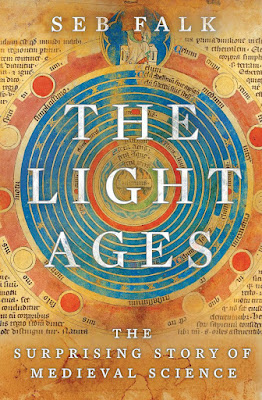The Light Ages
You know I always love a good book about how the Middle Ages were way cooler than you thought. This one came out at almost the exact same time as another book called The Bright Ages, so there was definitely something in the air that year. This book, however, is specifically about certain aspects of scientific progress during the Middle Ages, especially astronomy, and it constructs its narrative around a monastery in St. Albans, which is just north of London.
We start with a very grabby story, about how in the 1950s a scholar found an old hand-written astronomical treatise at Cambridge and thought, for fairly good reasons, that it might possibly be a holograph by Chaucer. The manuscript described an instrument that was not an astrolabe...what even was it?
And from there we set off to St. Albans and a tour of medieval calendar math, clocks, universities, astronomical prediction (with a side trip into arguments over astrology), and the ever-more-elaborate tools that could be used to do all that math. They had astrolabes, yes -- and a thing called an Albion, an absolutely genius marketing brand name that told you this instrument was an 'all-by-one' that did way more than an astrolabe and reminded you it came from England. And then there was the instrument that was never made, only described, but it would have been amazing.
The whole thing was fascinating, though I'm not really capable of fully understanding all the math. The amount of calendrical and astronomical math understood by your basic fairly educated monk was stunning. Your basic experienced ship captain didn't need an astrolabe often, because he understood a whole lot of tidal math without it. It was all very interesting and fun stuff to learn.
Why, then, do we persist in belittling the Middle Ages? In part it is certainly to exalt ourselves....





Comments
Post a Comment
I'd love to know what you think, so please comment!